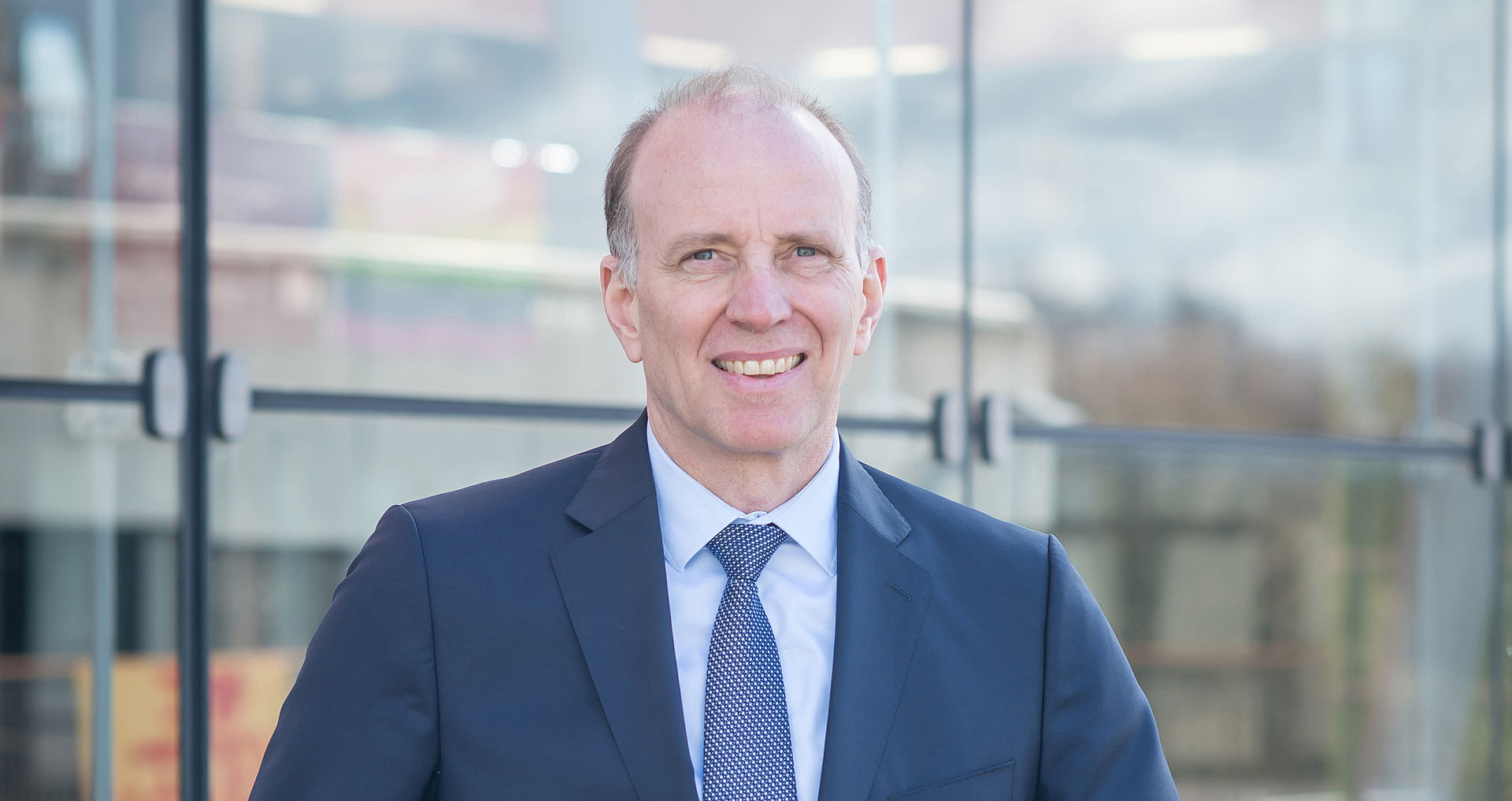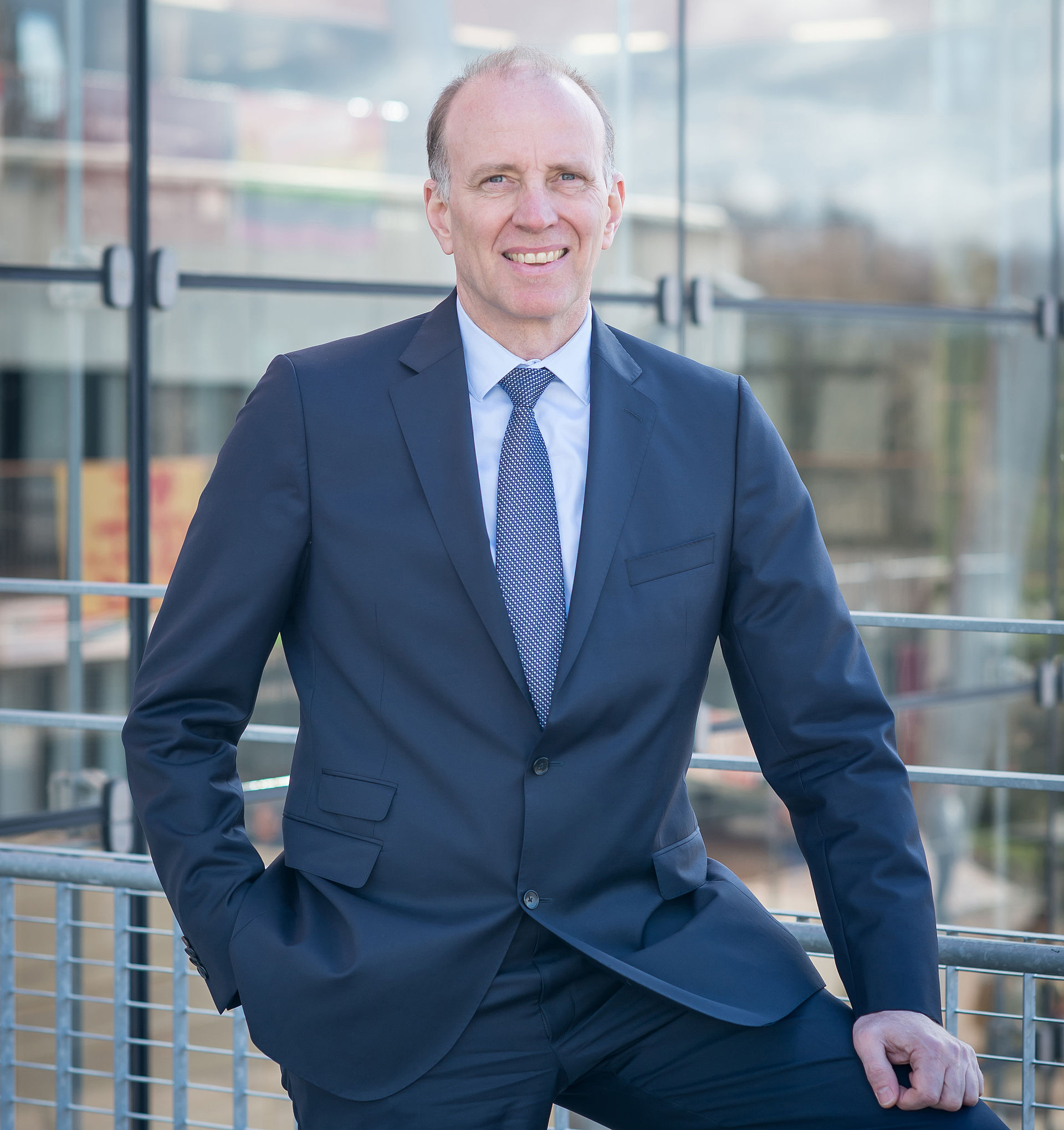July 19, 2019. I must confess that I have only hazy memories of July 20, 1969. After all, I was only seven years old on that date. However, I am very familiar with the pictures that went around the world at the time: my father, who was working as a space engineer for the Airbus precursor ERNO, showed me the landing of the Apollo 11 “Eagle” lunar module. He had always been fascinated by the moon - and this interest spread to the rest of our family. For this reason, it is no coincidence that our large event hall at OHB’s headquarters is called “Luna” and houses a model of the Moon measuring around two meters in size.
As more evidence of my father’s enthusiasm for the Moon, OHB employees gave my father a plot of land on the Moon measuring 1,000 square meters on the occasion of his 70th birthday. Shortly after his death in October 2014 we used our own funds to send a small probe to the Moon with the Chinese mission Chang'e 5-T1 in memory of him. Our company in Luxembourg, LuxSpace, did a great job! This 14 kg secondary payload was not a paid contract. Rather, it was the world’s first privately financed lunar mission, carrying two small scientific instruments on board. By the way, the first European space probe ever to reach the moon, the ESA mission SMART-1 (launched on September 27, 2003, impact on the moon September 3, 2006), was also implemented by one of our teams, the engineers at what today is known as OHB Sweden (then SSC).
Flights to the moon are not likely to generate any profit in the foreseeable future
I have always shared my father’s fascination with the Moon and am convinced that it makes a lot of sense to return to it soon, although not essentially to pursue commercial goals. I’m sure that flying to the moon will not be a profitable business proposition any time in the foreseeable future. At present, people want to travel to the moon out of idealism or for reasons of prestige and, more particularly, to use the new technological opportunities for scientific exploration.
Consequently, I am convinced that it will be crucial to take sensible scientific application to the Moon. If humans are ever to spend protracted periods of time on the Moon, we must first create the conditions for ensuring that this is possible. Accordingly, we need to take useful equipment to the moon so that we can stay there permanently: 3D printers, for example, to produce building materials for habitats for growing plants for food supplies. As well as this, devices for recycling water and oxygen will be needed.
The overview effect should not be underestimated
We are currently very much concerned with the question as to what a return to the Moon could mean for the Earth and humanity in the future. Many people dream of new settlements on the Moon, some talk of using the moon as a source of natural resources, while others see the far side of the Moon as a launch pad for future journeys to even remoter stellar outposts of humanity. Despite all our enthusiasm for space exploration, it is important for us to keep our feet on the ground and remain rational. As I see it, the Moon is primarily important and valuable for humanity because it forms part of the Earth/Lunar system and allows us to view the Earth in its entirety. This “overview effect” should not be underestimated especially in these times in which a whole generation of young people are drawing attention to the dangers posed by climate change and the destruction of the environment. This social attitude will make it all the more important to use satellite technology to continue observing the Earth and tracking the harmful changes closely. This awareness did not emerge until the years following the first few Apollo missions.
I can’t imagine that we will be settling permanently on the Moon any time soon, and certainly not in the next few decades. Settlement of the Moon will proceed in much the same way as it has at the south pole on Earth. Research stations in which people will stay for ever longer periods over the years will be established. Ultimately, there could be a whole network of such stations. I can also very well imagine that the planned Lunar Gateway – the space station that will orbit the moon in the future – will be the hub from which researchers descend to the lunar surface. I can also easily envisage the Moon being used as a launch pad for voyages to Mars. But I don’t think that people will ever settle permanently on Mars. Conditions on the earth would need to deteriorate heavily before Mars would be seen as a more viable place to live than the earth through the infrastructure created by humans (or also as a result of terraforming ...).
The moon allows us to better understand the origin of the earth
So we should first focus on our closest neighbor in space, namely the Moon. There is still a lot to be discovered there. The Moon is something of a peephole, allowing us to gaze back across the Earth’s history spanning 4.6 billion years. Scientists are convinced that a huge meteorite hit the Earth very early in its history, throwing into space pieces from which the moon eventually emerged. Since there is no erosion and no atmosphere on the moon, the original substance of the Earth has been suspended in time with the moon, so to speak. This gives scientists a means of better understanding the origin of the earth. In my opinion, we will need to transport very special scientific equipment to the moon over the coming years and then create the conditions allowing research stations to be set up for scientists.
Even today, getting astronauts to the Moon remains a huge challenge, which costs a great deal of money. It was not least of all because of the high costs that the Apollo program was prematurely discontinued. At that time the lunar activities came to a standstill because the country could no longer afford them. So when US President Donald Trump announces today that he will send Americans to the moon again by 2024, it will also be a question of keeping costs within a range that is acceptable to society as a whole. Back in the 1960s this was only possible because it was all a question of prestige in the Cold War era. The Americans wanted to stay ahead in the fight between the two major blocs. Today we face a different situation. Heavy spending on space missions will only be accepted if governments or institutions can explain the benefits successfully. In my opinion, answering the question of how the world came into being and how our wondrous life on Earth originated is worth such an investment.
Personal details:
Born in 1962, Marco Fuchs studied law in Berlin, Hamburg and New York. He worked as an attorney in New York and Frankfurt am Main from 1992 to 1995. In 1995, he joined OHB, the company that his parents had built up. He has been Chief Executive Officer of OHB SE since 2000 and of OHB System AG since 2011. Marco Fuchs is married and has two children.


